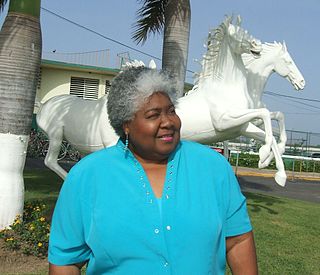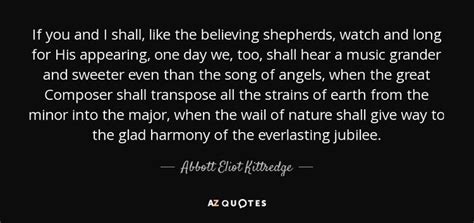A Quote by David O. McKay
The character of a child is formed largely during the first twelve years of his life. He spends 16 times as many waking hours in the home as in the school, and 126 times as many hours in the home as in the church. Each child is, to a great degree, what he is because of the ever-constant influence of home environment and the careful or neglectful training of parents. Home is the best place for the child to learn self-control, to learn that he must submerge himself for the good of another. It is the best place in which to develop obedience, which nature and society will later demand.
Quote Topics
Another
Because
Best
Best Place
Careful
Character
Child
Church
Constant
Control
Degree
Demand
Develop
Each
Environment
Ever
First
Formed
Good
Great
Himself
His
Home
Home Environment
Hours
Influence
Largely
Later
Learn
Life
Many
Must
Nature
Obedience
Parents
Place
School
Self
Self-Control
Society
Times
Training
Twelve
Waking
Which
Will
Years
Related Quotes
Wherever possible, home is by far the best nest until at least eight, ten or twelve. Psychologists and psychiatrists who understand child development would prefer an even later age. In a reasonably warm home, parent-child responses, the true ABC's of sound education, are likely to be a hundred times more frequent than the average teacher-child responses in a classroom.
Sometimes a child will get lucky and be placed with foster parents who are loving and supportive and who consider that child their own. But for many, that doesn't happen. Kids are moved around from home to home, to group home and institutions, until they are 18, when they are considered adults and the system is finished with them.
The home is the first and most effective place to learn the lessons of life: truth, honor, virtue, self control, the value of education, honest work, and the purpose and privilege of life. Nothing can take the place of home in rearing and teaching children, and no other success can compensate for failure in the home.
I believe that the fewer the laws in a home the better; but there is one law which should be as plainly understood as the shining of the sun is visible at noonday, and that is, implicit and instantaneous obedience from the child to the parent, not only for the peace of the home, but for the highest good of the child.
It is easy to say that you can adopt the whole human race as your children, but it is not the same as living in a home with a child and shaping all you do to help him learn to be happy and whole and good. Don't live your life without ever holding a child in your arms, on your lap, in your home, and feeling a child's arms around you and hearing his voice in your ear and seeing his smile, given to you because you put it into your heart.
The child in each of us Knows paradise. Paradise is home. Home as it was Or home as it should have been. Paradise is one's own place, One's own people, One's own world, Knowing and known, Perhaps even Loving and loved. Yet every child Is cast from paradise- Into growth and new community, Into vast, ongoing Change.
When I have children that go home and mom and dad are not home because they're working, they're trying to get food on the table, and they come home to an empty house and they go to sleep in an empty house, there is no way that child can compete against a child from the west side of Los Angeles who both parents went to Stanford. Well, good for them, God love them. That's not an equal playing field.
Home is the place you return to when you have finally lost your soul. Home is the place where life is born, not the place of your birth, but the place where you seek rebirth. When you no longer have to remember which tale of your own past is true and which is an invention, when you know that you are an invention, then is the time to seek out your home. Perhaps only when you have come to understand that can you finally reach home.
Maybe that's what growing up means, in the end - you go far enough in the direction of - somewhere - and you realise that you've neutered the capacity of the term home to mean anything. [...] We don't get an endless number of orbits away from the place where meaning first arises, that treasure-house of first experiences. What we learn, instead, is that our adventures secure us in our isolation. Experience revokes our licence to return to simpler times. Sooner or later, there's no place remotely like home.
To be changed by ideas was pure pleasure. But to learn ideas that ran counter to values and beliefs learned at home was to place oneself at risk, to enter the danger zone. Home was the place where I was forced to conform to someone else’s image of who and what I should be. School was the place where I could forget that self and, through ideas, reinvent myself.
The parent-child relationship in the home usually reflects the objective cultural conditions of the surrounding social structure. If the conditions which penetrate the home are authoritarian, rigid, and dominating, the home will increase the climate of oppression. As these authoritarian relations between parents and children intensify, children in their infancy increasingly internalize the paternal authority.





































